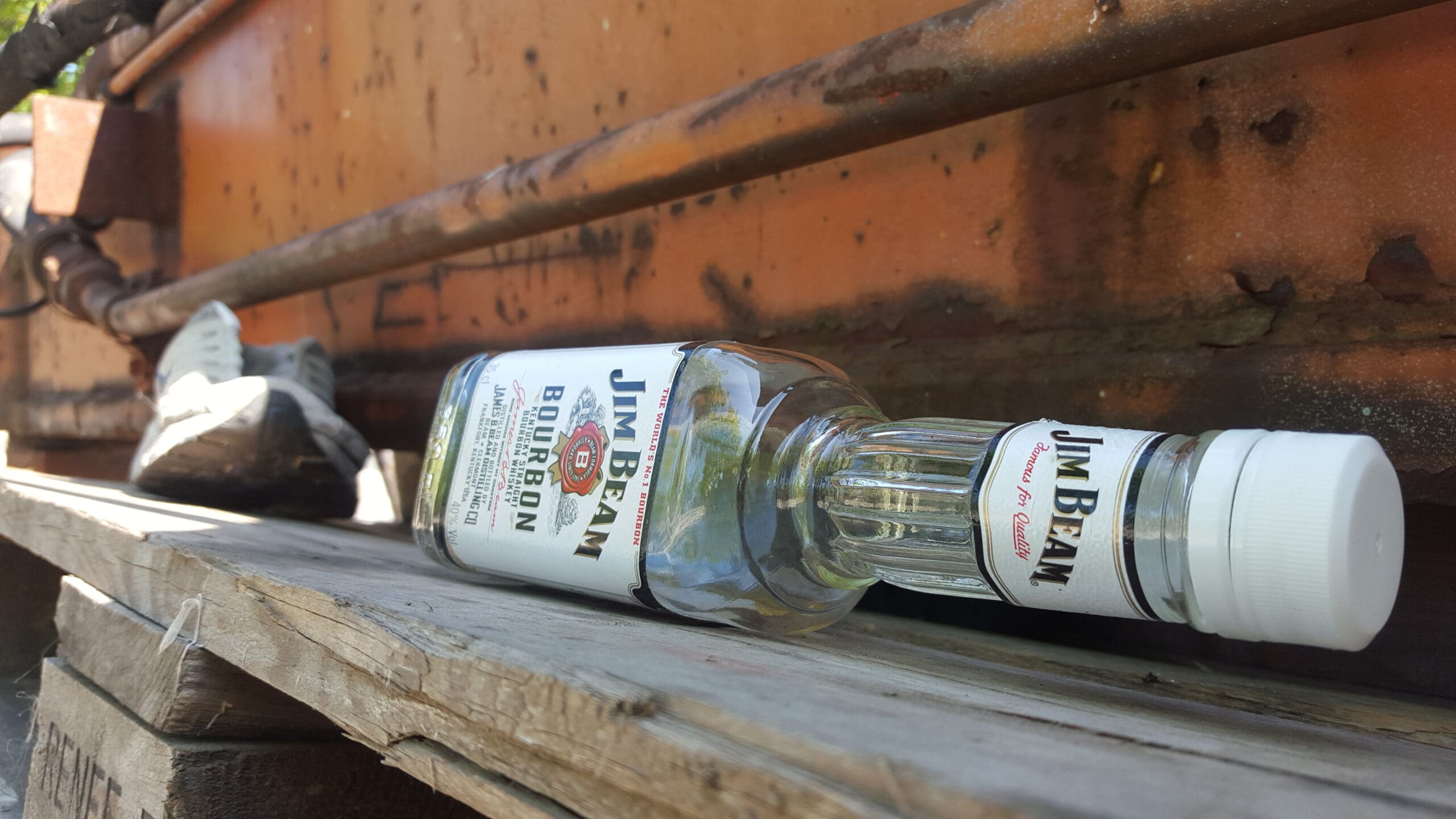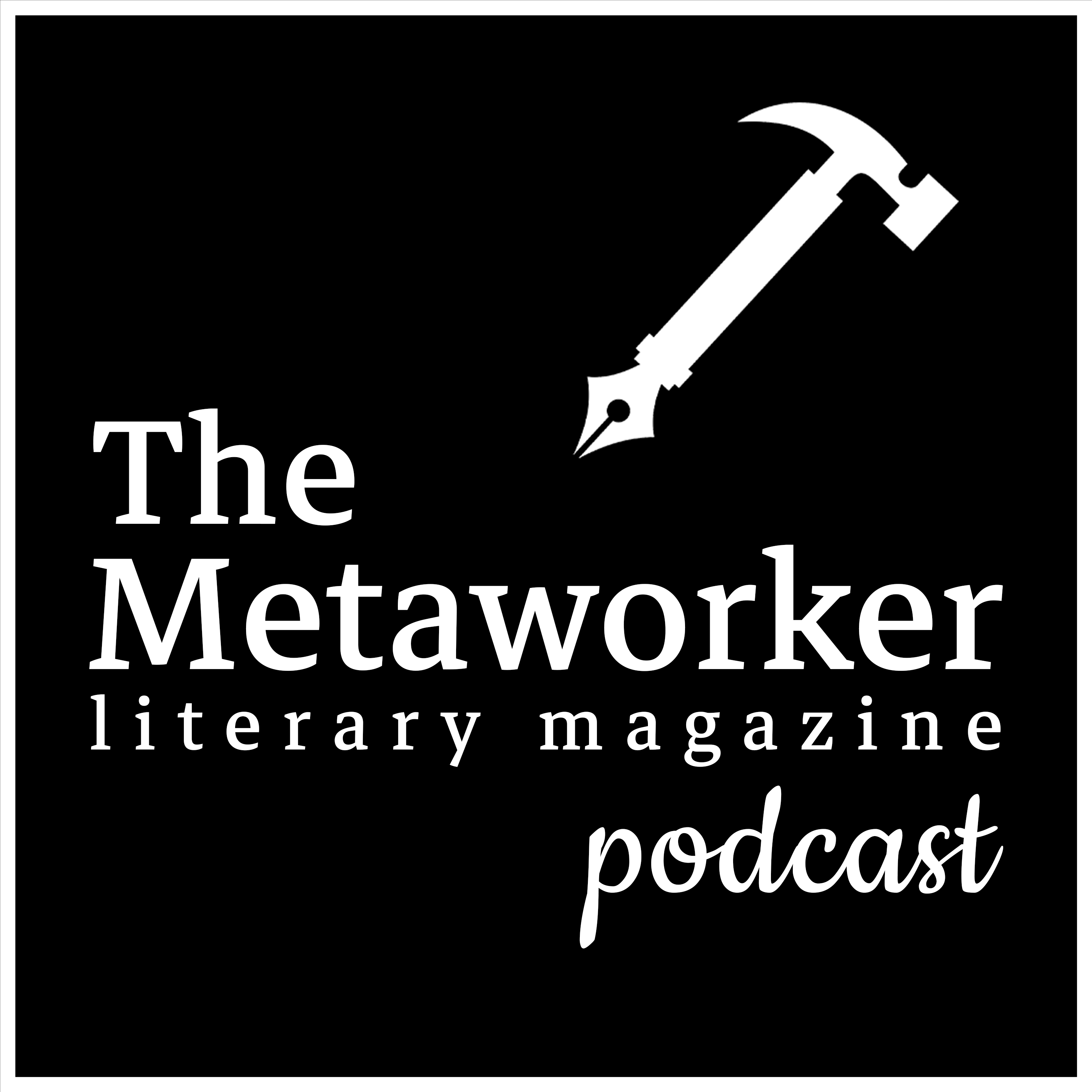Morning, a hot wind blowing from the east sent the tall yellow prairie grass bowing in ripples toward the old house. Colin leaned against the wood post to the barbed wire fencing that stretched from east to west as far as the eye could see, altering nothing in the flat prairie, but an intrusion in the pristine western open landscape nevertheless. He lifted a nearly empty bottle of Jim Beam to his parched lips and poured the whiskey into his mouth while looking skyward, squinting in the glare of the yellow sun unobstructed by the white pillows of clouds that hung in clumps in the pale blue sky. He lowered the bottle and with his bare back against the post he slid to the ground, sitting in a nest of grass that he had formed while standing there kicking at the earth with his boots. A meadowlark alighted on a distant post and let out a brief melodic aria. Colin raised the bottle to his mouth again and looked the direction the wind was blowing, focusing blurringly on the house, and took another long swig.
Even at the distance he was from the house, he could hear Jack barking, probably having caught the scent of a gopher or jackrabbit. Good old Jack. Colin opened his eyes wide, trying to fool his booze addled mind into believing he could clearly see what he was looking at. What he was seeing was the image imprinted in that part of his brain that retained the same image he had seen since he was old enough to crawl around in his diapers among the chickens. Gnats buzzed around his ears and sweat ran in rivulets down his bare chest and abdomen. He took another drink of whiskey.
With the bottle empty he tossed it aside and removed his dingy white cowboy hat and placed it in the grass beside his outstretched legs. The wind rustled his curly black hair and he turned to the east and opened his mouth and gulped in the blowing aroma of the prairie in late August; dry earth and sun scorched plants.
#
The next noon, the chickens in the yard busily pecked about for the scattered kernels of corn that Colin’s mother, Janet, has tossed around in handfuls scooped out of a large wooden salad bowl. Her cotton floral print skirt fluttered in the breeze that also caught loose strands of her graying black hair creating tentacles that curled and twisted around her sun-weathered face. Jack was at her side, rubbing his lean body covered in long red hair against her bare legs. She looked to the west and watched as a line of bison crossed the range beyond the barbed wire fence. Colin came out of the house and stumbled from the small set of stairs that led out of the kitchen to the backyard, catching his balance before falling face-first into the dirt. Jack ran over to him, his tail rapidly wagging.
“Hey old boy,” Colin said, rubbing the dog’s bony head. He held the back of his hand to Jack’s mouth and let him lick it. “It’s going to be another hot one,” he said to his mother.
She turned from watching the bison and scooped the last handful of corn from the bowl and tossed it to the chickens. “Your father was hoping you would ride out to see about the cattle with him this morning,” she said. “He tried but he couldn’t wake you.”
“I think I had a bit too much to drink last night,” Colin said, wavering unsteadily on his bare feet.
“You always have too much to drink, Colin,” she said, looking up to see a flock of geese flying in a v formation cross the sky.
“My friends took me to that saloon in Scenic,” he said, swatting at a horsefly that landed on his shoulder, tickling his flesh.
“Your friends are what got you in the trouble you’re in to begin with. Them and alcohol,” she said walking past him and up the stairs. As she opened the door she turned to him and said, “We hoped you would try to be sober at least a couple days before you go to prison.” She went into the house letting the screen door slam behind her.
Colin staggered over to the empty water troth, a remainder from and reminder of the days when they rode about the ranch lands on horses. They were sold in favor of a used Ford pickup that his father called Magnet because that was the name of his favorite mare he no longer had. His stomach was in upheaval; the chili he had at the saloon had not set well with the whiskey, his preferred choice of beverage. He turned around and barfed into the troth, then wiped his mouth with the back of the same hand that Jack had slobbered on, and took a pack of Marlboro’s from his back pants pocket, a Bic lighter from his front pocket, lit a cigarette and took a long drag on it. He watched the curl of exhaled smoke quickly dissipate in the noon time breeze. He wanted to drive somewhere, anywhere, just for the hell of it. But his car was gone, sitting in a car junk yard among all the other hunks of mangled automobiles.
Driving while under the influence, DUI, they called it.
#
Night, the month of June, Colin was under the influence of a full moon shining bright and low in the early summer star-filled sky. He was under the influence of the rush of wind though his open car windows, his car being filled with the scents of wet earth from a day-long raining spell and sprouting bright green prairie grass that grew along highway 44 coming from Rapid City. It had not been the fun night he had planned, but he never liked the saloons in Rapid City anyway; too filled with businessmen posing as cowboys wearing clothes, hats and boots that had never been worn on an actual ranch or farm, and desperate secretaries not interested in meeting anyone but these fake cowboys. He had had a few shots of whiskey at the last of the three saloons he had been to that night, drove in a half-lit state around the city with two friends until he found a store where they could buy a couple bottles of Jim Beam.
He and his two buddies sat in the darkness in the grass along Rapid Creek and drank until sunrise. Leaving them to sleep it off there along the creek, he got into his car, opened the last bottle of Jim Beam, put a Garth Brooks CD in the player, and drank and sang his way under all those influences half way to Scenic before swerving off the road to avoid hitting a deer crossing the road. His car flipped three times before he was ejected miraculously unharmed out of the smashed windshield and landed in the grass, still grasping the neck of the broken bottle. He laid there in the grass with his car upside down on top of a bent highway sign, until a deputy sheriff found him, the demolished vehicle, and destroyed Highways Department property, an hour later. His blood alcohol level was two times over the limit. Two days later he was under the influence of a judge.
“This is your third DUI charge in six months and the records show you have not sought help for your excessive drinking,” the judge said. “What do you have to say for yourself?”
Colin wanted to say he needed a drink, but he looked at his dad who had barely looked at him all the way from the house to the court building in New Underwood, and seeing the pale face and dour expression on his father’s face, he kept his mouth shut.
“You’re a menace to anyone else on the roads. Maybe two years in the state prison will help you with your drinking problem,” the judge said before bringing down the gavel with a resounding crack.
#
Afternoon, three o’clock, the pendulum in the grandfather clock in the corner ticked monotonously from side to side as the chime behind the clock face sounded three times. On the sofa, Colin sat up and ran his fingers through his hair. Through the open window hot wind blew the sheer blue curtains into the room, their hems fluttering and snapping in mid-air. He got up and ducked beneath the curtains and looked out. Jack was lying under the swinging chair that rocked back and forth hanging from rusty, squeaking, hooks in the porch ceiling. A small eddy of dirt, like a miniature twister, whirled across the bare front yard.
#
Afternoon, fifteen years before, Colin was twelve years old and sat in a hard wooden chair in the principal’s office swinging his legs back and forth under the seat. His father, Al, sat on one side of him in another wooden chair and his mother sat on the other side, in a similar chair. The principal, Mr. Dawson, was seated behind a big metal desk, his hands folded on top of a small stack of manila file folders. The window behind Mr. Dawson was closed and the brown shade up. Colin watched heavy snow fall on the playground equipment and school yard behind the school. Several crows were perched along the top of the schoolyard fence like avian sentinels.
“Al and Janet,” Mr. Dawson said looking first at one then the other, “we’ve been friends for a long time and I’ve known Colin his entire life, so I feel I can be frank with you.”
“Certainly,” Janet said, shifting uncomfortably in her chair.
“Colin is one of the brightest pupils in his grade, but his teachers can hardly handle his restlessness. Mrs. Upshaw said it’s like Colin is fighting against invisible restraints around his body,” Mr. Dawson said. “And as you know, Mrs. Upshaw is not prone to exaggeration.”
“He’s the same way at home,” Janet said. “He was examined by the doctor and all he said was that Colin is just going through a phase.”
Mr. Dawson leaned back in his chair and grasped onto the arms as if trying to hold himself in his seat, and looked at Colin’s dad. “What do you think, Al?”
Al cleared his throat. “It’s nothing that a good hide tanning won’t take care of.”
#
Afternoon, 3:15, Colin pulled his head back in and turned around and through a curtain that flickered in front of his face he saw his mother standing in the doorway leading into the kitchen looking at him. She was wearing an apron and her face was smudged with flour. He had never been able to read her facial expressions.
“You have flour on your face, Mom,” he said, pushing aside the curtain that had given his view of her being seen in a dreamlike bluish haze.
“I’m making bread,” she said, lifting the hem of the apron and dabbing her face, sending a light snowfall of flour onto the wooden floor. “You always liked my bread.”
“You make it sound as if I’ll never have it again,” he said. “I’m going to prison, not Siberia.”
“If only you had gotten some help for your drinking,” she said wistfully. “It’s what your attorney said you needed to do after the second charge.”
“I like to drink,” Colin said. “When I pass out then wake up I don’t even notice time has passed.”
“I don’t understand that at all,” she said, pushing a stray hair back from her forehead spreading flour across her brow. “You can’t just drink to throw away what little time you have on this planet.”
“I can’t think of any other way to do it,” Colin said.
#
Evening, 5:30, Al sat in the large chair in the living room trying to pry a splinter out of the palm of his hand with a Swiss army knife. Jack sat at his feet gnawing on the bone he had been given from the roast that Janet had fixed for dinner. The grandfather clock ticked and a steady hot breeze blew in through the open window. The sound of a lone coyote yelping from somewhere out in the prairie momentarily interrupted the solitude. Colin came into the room carrying some sheets of paper and sat down on the sofa and began to read what was written on the first sheet.
“What you got there, son?” Al asked looking up from the bleeding wound he had made in his hand.
“It’s a list of what I can’t have when I am in prison. Contraband they call it. They want to make sure I don’t bring along any files or hacksaws when I check in,” Colin said not looking up from the paper. “Basically I can’t take anything to make life more comfortable or to make time pass faster.”
“You were never happy with what you had or where you were anyway,” his father said grumpily.
“It’ll be two years of just sitting around,” Colin said. “I’m going to get pretty restless.”
“You were born restless and you’ll die that way,” Al said.
“You tried to beat it out of me,” Colin mumbled.
“What?” His father asked.
“You tried to beat it out of me,” Colin said, his voice raised.
“What?”
“You tried to beat the restlessness out of me,” Colin screamed.
“I was just trying to help,” his dad said, his lined, tanned face red with anger. “Look where being restless has gotten you.”
“You tried to beat it out of me,” Colin whispered.
#
Night, Colin ambled his way through the tall prairie grass, carrying a bottle of Jim Beam, the one he had kept hidden in his room. He looked up at the night sky and watched a shooting star streak across the heavens and disappear into the clutter of stars. Jack followed close behind and Colin stopped and patted the dog on the head.
“Go home old boy,” he told the dog, who whined briefly then turned and went back toward the house.
At a wood post, part of the barbed wire fence that divided their property from the open prairie and the boundaries of the Badlands National Park, Colin leaned against it, took his cowboy hat and laid it in the grass at his feet and opened the bottle and took a long swig. He could see the light on above the porch of his home but all the windows were dark. Coyotes howled in the distance. He drank until he was drunk and had reached that point where the passing of time went unnoticed and the endless boredom became meaningless. Then he passed out.
#
Morning, Colin opened his eyes and shook his head trying to erase the dream he had. It had been so vivid, as if his brain was showing a movie about the details of his life, his home, the blowing of the hot summer winds across the prairie and even Jack’s barking. He looked at the stretch of prairie between him and the house, and the house itself. In the dream he had set it all ablaze.
The day before had worn on like most of the days before it, the only difference being that he and his parents were confronting the reality that he would be going to prison. Lying there in the grass he didn’t know what the feeling was exactly, but it was like he was a piece of glass, cracking, about to shatter. Reaching into his pants pocket he pulled out a red Bic lighter, and turned westward, and flicked the small wheel on the lighter and put the flickering flame to a clump of dead grass and watched it ignite. With his hat he fanned the flame and felt the heat of the erupting fire. He scooted a few feet from the spreading fire and watched it move westward, rapidly consuming the combustible dry grass, stretching out in a crackling line of exploding grass, north to south, a rapidly moving and expanding inferno. He heard Jack whining, and then silence, and then the house was covered in a blazing blanket.
Steve Carr, from Richmond, Virginia, has had over 390 short stories published internationally in print and online magazines, literary journals, reviews and anthologies since June, 2016. He has had six collections of his short stories, Sand, Rain, Heat, The Tales of Talker Knock and 50 Short Stories: The Very Best of Steve Carr, and LGBTQ: 33 Stories, published. His paranormal/horror novel Redbird was released in November, 2019. His plays have been produced in several states in the U.S. He has been nominated for a Pushcart Prize twice. His Twitter is @carrsteven960. His website is https://www.stevecarr960.com / He is on Facebook: https://www.facebook.com/steven.carr.35977



